

SUSTAINABILITY REPORT 2023

Message From the CEO


Andy Tometich
Chief Executive Officer and President
Our passion for sustainability has long been central to our company and integrated into our business. In 2023, we further advanced our enterprise strategy aimed at delivering value to our customers, our colleagues, and our communities.
At Quaker Houghton, we combine our solutions with industry insight and intelligence to See Beyond™ the issues of today and secure a better tomorrow. In our 2023 Sustainability Report, we further explore the pillars of our focus and highlight the meaningful progress we have made on our commitments.
Since their inception, our 2030 Sustainability Goals have been based on four key pillars: Innovating Together for a Better Tomorrow, Protecting Our Planet, Empowering our Colleagues and Communities, and Sourcing Our Materials Responsibly. These pillars inform our actions, and the recognition we have received, such as achieving an EcoVadis Silver award in 2023, reinforces our commitment to progress.
I am pleased to share that we have successfully achieved all our 2023 milestones, many ahead of schedule. These critical steps are a tangible representation of our actions and are leading Quaker Houghton towards delivering on our ambitious long-term goals.
In 2023, we continued to invest in systems and processes to more closely align with the Global Reporting Initiative (GRI), the Sustainability Accounting Standards Board (SASB) standards, and the Task Force on Climate-related Financial Disclosures (TCFD). We made progress on our carbon neutrality goal by investing in renewable energy sources and certifications, which now span more than 70% of our total electricity consumption. Additionally, we selected our portfolio of sustainable products and solutions that launched in early 2024, strengthening our offerings to lead our customers towards achieving their sustainability goals. These capabilities are essential to achieve our new 2025 milestones, enable Quaker Houghton to deliver on its 2030 Sustainability Goals, and ultimately drive our industry forward.
Our customer-intimate model is brought to life by our people. We are harnessing the power and agility of the organization by building global resource teams to better deliver value for customers. We are also expanding our commitment to our inclusive culture and protecting the individuality and well-being of our colleagues and communities. In 2023, we also launched a global giving foundation and for the fourth consecutive year we have improved our already industry leading Total Recordable Incident Rate (TRIR).
I am proud of the entire organization for their commitment to our sustainability journey. We have built clear momentum in our business, advancing our enterprise strategy, and I am excited by the opportunities to further unlock our potential and positively impact the future of our company, our customers, our communities, and each other. appreciate your interest in Quaker Houghton and encourage you to read more about our progress and ambitions in the 2023 Sustainability Report.
Highlights: 2023 at a Glance
Launched first resulting in a 94% increase in recorded volunteerism hours
Global Month of Giving

100+ countries served around the world
~$1.95B in sales
36 manufacturing sites around the world
~30 technology sites around the world
11 of the company’s largest electricity consuming locations have installed energy monitoring software to allow locations to target their efficiency efforts
71% of Quaker Houghton’s electricity is sourced renewably via grid, solar panels, and purchased contracts
26,000+ metric tons of waste avoided/reduced at QH FLUIDCARE™ partner locations
Established a Diversity, Equity, and Inclusion taskforce

60 points and a silver medal awarded by EcoVadis for our sustainability performance, ranking us in the top 24% of chemical companies assessed
15,000+ customers 0.37 100% of our direct suppliers above $100k spend commit to Quaker Houghton’s Supplier Code of Conduct
97% of colleagues participated in the performance management process
>60% of our total volume of palm oil and Palmoleine is certified through RSPO
4,400 committed colleagues

Total Recordable Incident Rate (TRIR), which is well below the average TRIR of 1.9 for Chemical Manufacturing (2022), as cited by the U.S. Bureau of Labor Statistics
Who We Are and How We Manage Sustainability Sustainability Governance and Management at Quaker Houghton

Company Overview
Quaker Houghton is the global leader in industrial process fluids. With a robust presence around the world, including operations in 100+ countries, our customers include thousands of the world’s most advanced and specialized steel, aluminum, automotive, aerospace, offshore, can, mining, and metalworking companies. Our high-performing, innovative, and sustainable solutions are backed by best-in-class technology, deep process knowledge, and customized services. With approximately 4,400 colleagues, including chemists, engineers, and industry experts, we partner with the world’s leading manufacturing companies who rely on our process fluid solutions to advance the world safely and sustainably.
At Quaker Houghton we strive to integrate sustainable business practices across our operations and to continually develop sustainable solutions that meet evolving customer needs. Accordingly, our sustainability strategy is critical to our long-term business objectives and strong governance structures and management approaches are needed to support the achievement of our ambitious sustainability vision. Our governing processes create accountability, support consistent communication, and drive progress toward our goals—which are highlighted in our Global Sustainability Statement and core to our environmental, social, and governance (ESG) efforts.
Board Level Governance
Quaker Houghton’s Board Sustainability Committee, established in 2020, assists the Board of Directors in its assessment and evaluation of Quaker Houghton’s sustainability programs pertaining to the company’s business, operations, and colleagues. The Board Sustainability Committee’s responsibilities include integrating sustainability planning into the company’s business planning strategy, risk management, processes, and culture, and assessing and responding to risks connected with sustainability matters. The Board Sustainability Committee is also engaged in the development and implementation of our sustainability goals and regularly reviews and monitors our progress against them. The Board Sustainability Committee traditionally meets three times a year, but no less than twice annually.
Additional information on sustainability management and reporting responsibilities is available in the Board Sustainability Committee Charter Details on the Board Sustainability Committee members’ knowledge and expertise are available in our most recent Proxy Statement. Beyond the Board Sustainability Committee, Quaker Houghton’s full Board of Directors receives sustainability updates from the Executive Leadership Team (ELT) via quarterly reports and an annual presentation.
Executive Level Governance
The ELT has operational leadership and responsibility for sustainability management. In 2023, the Executive Sustainability Committee comprised a cross-functional team of leaders, including the Chief Commercial Officer, Chief Technology Officer, Chief Human Resources Officer, Chief Financial Officer, Chief Supply Chain Officer, Senior Vice President of Operations, Director of Environmental, Health, and Safety (EHS), Vice President of Procurement, and Director of Corporate Sustainability. These delegates to the Executive Sustainability Committee support the ELT.
Functional and Disclosure Leadership
Quaker Houghton’s Director of Corporate Sustainability partners with leaders across business functions to propel our existing sustainability activities forward and to develop and execute on new initiatives. The collective sustainability team works with functional leaders as well as marketing, corporate communications, legal, and investor relations leaders to accurately and efficiently share ESG information with our stakeholders.

Our Materiality Results
Relevant Topics
Quaker Houghton completed a materiality assessment in 2020, following the combination of Quaker Chemical Corporation and Houghton International, to identify the ESG topics most significant to our company and stakeholders. These topics were identified via extensive research and benchmarking of the industry landscape as well as in-depth stakeholder engagement. They were then mapped across the Quaker Houghton value chain to determine where they were most relevant in the business.
Stakeholder Engagement
The materiality assessment process included substantial engagement with internal and external stakeholders. Internal stakeholder engagement included interviews with leaders across business functions and a survey of approximately 10% of our colleagues. External stakeholder engagement included interviews with investors, customers, and suppliers. We further engaged our ELT and Board Sustainability Committee to validate the prioritized material topics (see figure to right).
Application
The final list of material topics informed the development of our sustainability strategy and goals, released in August 2021, and continues to be the focus of our ESG initiatives and reporting. As part of our reporting process, we re-engaged key internal stakeholders responsible for our material topics to review our approach, programs, and progress against our goals.
Materiality Matrix
Our Vision, Pillars, and Progress Against Our Goals
Our Corporate Sustainability Vision
Through uniting our people, expertise, and resources, we will deliver contributions that result in a better, safer world and make a positive difference in the lives and organizations we touch.
Our Pillars
x Innovating Together for a Better Tomorrow
x Protecting Our Planet
x Empowering Our Colleagues and Communities
x Sourcing Our Materials Responsibly
Quaker Houghton’s 2030 Goals1
INNOVATING TOGETHER FOR A BETTER TOMORROW
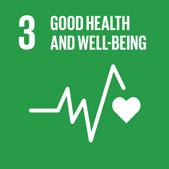
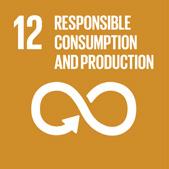


x Minimizing Hazards in Our Portfolio
x Achieve 100% of finished goods in our portfolio not classified as Carcinogenic, Mutagenic, or Reprotoxic (CMRs)2
x Transitioning Our Solutions to Support a LowCarbon Economy
x Formulating With Renewable Raw Materials
PROTECTING OUR PLANET
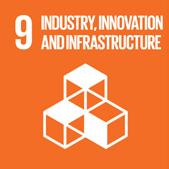

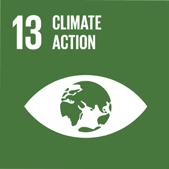
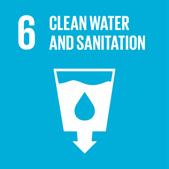

x Reducing Our Greenhouse Gas Emissions
x Eliminate 100,000 metric tons of waste at QH FLUIDCARE™ partner locations3
x Reduce our use of virgin fossil-based raw materials by 30%
x Reduce our use of virgin fossil-based raw materials by 30%
x 98.8% of finished goods not classified as CMRs2
x Managing Our Water Responsibly
x Minimizing Our Waste
x Achieve carbon neutrality in our global operations
x Set science-based targets to achieve net zero greenhouse gas (GHG) emissions across our value chain by 2050
x Over 26,000 metric tons of waste eliminated in 2023 at QH FLUIDCARE™ partner locations, and over 47,000 metric tons eliminated since 2022
x Created and implemented a preferred raw materials list
x Established 6 roadmaps to formulate new product platforms
x 20.7% of the raw materials used originated from renewable sources4
x Added Green Chemistry Guideline resources in 14 languages
x Reduce waste to landfill, hazardous waste, and water consumption per revenue ($) by 20% each3, 5
x 71% of Quaker Houghton’s electricity is sourced renewably via grid, solar panels, and purchased contracts
x 11 of the company’s largest electricity consuming locations have installed energy monitoring software to allow locations to target their efficiency efforts
x Over 200 new projects that focus on reducing waste, water, and energy consumption at major locations have beensubmitted for approval
x All non-U.S. manufacturing locations were ISO 14001 certified
x Waste to landfill was reduced by 3% (1.03 kg/$1,000 in revenue), hazardous waste reduced by 3% (3.08 kg/$1,000 in revenue), and water consumption increased by 10% (132.31 kg/$1,000 in revenue)6
1 Some of Quaker Houghton’s 2030 goals were modified in 2023 to reflect more realistic or ambitious targets and/or units of measurement or terminology more relevant to our organization. We have indicated which goals have been modified.
2 GHS Category 1 A/B (Not including Category 2 and Carcinogens, Mutagens, and Reproductive Hazards in Category 1 A/B that were tested by oral route of exposure).
3 Goal modified in 2023.
4 We have refined our approach to measuring the usage of renewable sources by transitioning from a sales of finished goods methodology to a more precise measure of tracking raw material purchases throughout the year.
5 From a 2022 baseline.
6 See restatements on page 30
Our Sustainability Goals and Milestones
In August 2021, Quaker Houghton released our sustainability strategy and a set of 2030 goals to help drive social, environmental, and economic progress. These goals, established with a 2021 baseline year unless otherwise noted, allow our company and colleagues to collaboratively work toward a sustainable future for society, our customers, and our business.
To create a clear pathway for achieving our long-term 2030 goals, we also developed short-term targets (referred to as our 2023 milestones) to focus our nearterm efforts. We are incredibly proud to announce that in 2023, we have achieved each of these milestones on or ahead of schedule. Additional details on our progress and the initiatives that enabled us to reach our 2023 milestones are provided in the topic-specific sections of this report. For additional information on how our 2023 milestones contribute to our 2030 goals, please see our website’s sustainability page
With our 2023 milestones achieved, we are excited to announce our next set of targets: 2025 milestones. Like our 2023 targets, 2025 milestones have been established for each of our material topics and align closely with our 2030 goals. The details of our newest set of milestones are included in the report sections on the following pages. We look forward to building on the momentum established with our 2023 milestones and reporting our progress in our next sustainability report.
UN SDG MATERIAL TOPIC WE ASPIRE TO BY 2030 PROGRESS TO DATE
EMPOWERING OUR COLLEAGUES AND COMMUNITIES


x Empowering Our Colleagues to Live Safe
x Have zero serious injury recordables
x Investing in Our People’s Growth and Development x Maintain a positive employment experience as demonstrated by our ability to attract, develop, and retain our colleagues1, 2
x Foster a growth-oriented environment for our colleagues by offering career development learning opportunities to our entire workforce (100%)1

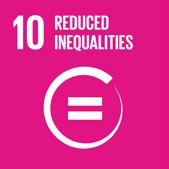

x Embracing Diversity, Equity, and Inclusion

x Supporting Our Local Communities’ Development
SOURCING OUR MATERIALS RESPONSIBLY


x Ensuring Everyone in the Supply Chain Is Treated With Dignity and Respect
x Confirming Sustainable Sourcing of Raw Materials
x Attain global workforce representation of between 25% and 27% women, with the same proportion of women represented in leadership globally1, 3
x Attain U.S. workforce representation of people from underrepresented ethnic groups between 25% and 27%1
x Enhance community impact by exceeding annual average volunteer engagement (participation), benchmarked against industry standards1
x Invest our time and resources to conduct impactful projects in all of the communities where we manufacture, work, and conduct research around the globe
x Achieved zero recordable incidents with more than five lost workdays at 96% of Quaker Houghton and customer locations
x 100% of our colleagues participated in the company’s annual Code of Conduct training program and bi-annual certification
x Over 50% of new managers participated in a new leadership development program
x 80% of colleagues have access to career enhancement programming
x 24% of our global workforce are women, 22% of our global management are women, and 26% of U.S. management are women4
x 28% of our U.S. workforce are from underrepresented ethnic groups
x Established a Diversity, Equity, and Inclusion taskforce
x Created two new global colleague reasource groups
x Hosted first Global Month of Giving, which resulted in a 94% increase in recorded volunteering hours
x Relaunched the Quaker Houghton Foundation globally
x Achieve 75% of total direct spend with suppliers that exceed our sustainability performance threshold
x 100% of direct suppliers above $100k spend commit to Quaker Houghton’s Supplier Code of Conduct
x Implemented a global sustainability supplier assessment tool, onboarding over 60% of our suppliers to the platform5
x Incorporated supply chain human rights awareness into annual compliance training with over 95% of colleagues completing the course
x Implemented a system to measure diversity for our U.S. supply chain
1 Goal modified in 2023.
2 Measured by an index consiting of measures for attracting, developing, and retaining talent.
3 Leaders/leadership is defined as anyone with at least one direct report.
4 Females with direct reports as a percentage of all managers with direct reports.
5 This percentage is derived from suppliers who are deemed material to Quaker Houghton with a direct spend above $100k.
INNOVATING Together for a Better Tomorrow
As a global leader in the process fluids industry, we continuously seek ways to improve and adapt to stay ahead in a changing world. Through our solutions that bring about positive environmental and societal impacts, we help everybody win—our customers, our communities, and the planet.


Introducing Quaker Houghton’s Sustainability Portfolio
Quaker Houghton aspires to be a leader in sustainability— not only within our own operations, but also for our customers who are seeking sustainable solutions. Our customers are at the core of our business, and we often find we share similar sustainability goals. In turn, as both a dedicated corporate citizen and partner to our customers, we are deeply committed to leveraging our products to help them achieve their sustainability ambitions. In 2023 and early 2024, we reinforced this commitment with the launch of our See Beyond™ campaign and sustainability portfolio.
Our See Beyond™ campaign details how a significant proportion of Quaker Houghton products have inherently sustainable attributes. Our products are designed to deliver sustainable benefits to our customers via their chemistry and in application. By nature of the raw materials utilized and the efficiencies associated with product use, Quaker Houghton technologies naturally enable sustainability gains for our customers. While many of our products have sustainable qualities, the sustainability portfolio showcases the solutions that deliver the most sustainable value to our customers. At present, the sustainability portfolio includes best-in-class solutions for a wide range of our customers. Key features of many of the technologies in our sustainability portfolio are:
x No CMR Category 1 A/B labels.
x Reduces energy.
x Reduces product consumption, waste generation, and water.
x Based on renewable raw materials.
Notably, the portfolio is not limited to our existing solutions— Quaker Houghton works continuously to develop new solutions that will meet our customers’ evolving needs, and this portfolio will grow and expand as we identify additional opportunities to drive sustainable value.
The sustainability portfolio and See Beyond™ campaign are about looking further than today’s challenges. These initiatives showcase how we support our customers on their own sustainability journeys and drive tangible improvements to keep pace with the demands of a changing world—both at present and into the future.
Learn more about Quaker Houghton’s Sustainability Portfolio on our website.


QUAKER HOUGHTON SEE BEYOND™ SUSTAINABILITY
Minimizing Hazards in Our Portfolio
2030 GOALS

Quaker Houghton’s Green Chemistry Guidelines
Quaker Houghton’s Green Chemistry Guidelines were introduced in 2022. Since then, we have made notable progress in increasing the application of these guidelines globally by introducing tools and training our colleagues.

Our Approach
Protecting the health and safety of people while maintaining the resources of our planet is a top priority at Quaker Houghton. Further, product composition has become increasingly important to some of our key stakeholders, including regulators and customers. In turn, minimizing hazards in our portfolio is critical to both our sustainability strategy and to enabling future business growth.
Day to day, our product stewardship team manages the research, development, and implementation of product safety standards across our global footprint. The Quaker Houghton Board Sustainability Committee and Board of Directors review our progress toward related goals and milestones regularly. The full Board receives quarterly reports while the Board Sustainability Committee receives an official update once a year.
Our research and development (R&D) teams continually evaluate, with input from our product stewardship team, our raw materials and conduct impact analyses to achieve the lowest hazard profile possible while preserving product efficacy. In 2023, we introduced a preferred raw materials list for our R&D colleagues to use during their product formulation work, enabling them
to select the most favorable raw material in terms of renewability and human and environmental safety.
In the instance a raw material is classified as hazardous, we partner with our suppliers to find a preferred alternative. These efforts are guided by our Global Green Chemistry Guidelines and the most stringent country hazard thresholds from the region.

98.8% of finished goods not classified as CMRs1
In 2023, we translated many of the supporting documents into 14 languages, and translated the full guidelines into Chinese, Japanese, and Portuguese to support both our colleagues and customers.
We are keenly aware our customers also have aggressive sustainability goals focused on reducing waste, water, energy, and GHG emissions, as well as safeguarding employees in their value chain. Driving inclusivity through the translation of these guidelines helps to make sustainable and safe solutions possible

In 2022, we achieved our 2023 milestones one year ahead of our target by implementing the Green Chemistry Guidelines globally and establishing our virgin fossil-based raw materials and mineral oil baseline. In 2023, we built on this momentum by rolling out several product transition roadmaps, three of which are specific to reducing CMRs. Since the product transition roadmaps have been adopted, we have reduced CMR hazards to 1.2% of our total revenue.
We look forward to our product roadmaps enabling continued progress into the future as we strive to achieve our newly announced 2025 milestones, listed below:
x Formulate 100% of new finished goods not classified as CMRs.
x Achieve 98% of existing finished goods not classified as CMRs.
From initial formulation through end use, Quaker Houghton is committed to the highest standards of product safety. Safety data sheets (SDS), which are
available to all customers regarding all products, specify the risks associated with using a certain product and help users understand potential hazards and how to mitigate them. As we work to minimize hazards and create safer alternative technologies, we expect to see visible improvements in the SDS. Further, all our finished goods are evaluated and compliant with the Globally Harmonized System of Classification and Labelling of Chemicals. For our customers, our communities, and beyond, Quaker Houghton’s efforts to minimize hazards in our portfolio are foundational to our strategy for a more sustainable future.

HIGHLIGHT STORY
Quaker Houghton’s Sustainability Portfolio: QH EVERTREAT™ 9309

Quaker Houghton’s newly launched sustainability portfolio highlights how we minimize hazards in our products. For example, one of the solutions in this portfolio is a substitute for a carcinogenic class 1 ingredient, Chromium 6 (Cr6+), which is present in some passivation products. Quaker Houghton’s QH EVERTREAT™ 9309 solution is a trivalent chromium passivate for the steel industry that is free of Cr6+. The absence of this ingredient reduces potential hazards for our customers.
Transitioning Our Solutions to Support a Low-Carbon Economy
2030 GOALS
100,000
Eliminate 100,000 metric tons of waste at QH FLUIDCARE™ partner locations
Our Approach
As the world confronts the growing impacts of climate change, customers, shareholders, and other stakeholders want to know more about how businesses can help. At Quaker Houghton, we are committed to adapting and evolving to minimize our impacts, increase our resilience, and meet community demands while remaining our customers’ supplier of choice. Efforts to transition our solutions to support a low-carbon economy are overseen by the Innovating Together for a Better Tomorrow pillar lead, with the Board of Directors receiving quarterly reports and the Board Sustainability Committee receiving an official update twice per year.

30%
Reduce our use of virgin fossil-based raw materials by 30%
HIGHLIGHT STORY
Quaker Houghton’s Sustainability Portfolio: 2 PAQ™ Cleaners
Quaker Houghton’s low-carbon solutions demonstrate one of the ways we support our customers in responding to climate-related challenges. Our QH FLUIDCARE™ business line provides sustainable and affordable technical solutions that help our customers achieve waste elimination or avoidance—which in turn contributes to scope 3 emissions reductions. Last year, we achieved our 2023 milestone one year early when we implemented a data management platform to track waste avoidance and reduction at QH FLUIDCARE™ sites. We are pleased to share QH FLUIDCARE™ customers avoided or eliminated more than 26,000 metric tons of waste in 2023.
footprint, supporting our own emissions reduction efforts as well as our customers’. In 2022, we reached a 2023 milestone ahead of target with the launch of our global Green Chemistry Guidelines. As we work toward establishing our carbon footprint calculation

26,000+
of waste avoided or eliminated at QH FLUIDCARE™ customer sites in 2023
methodology, these guidelines allow us to advance our low-carbon aspirations by supporting the design of products to prevent waste, use renewable feedstocks, and promote energy efficiency.
Quaker Houghton also is proud to support the global low-carbon economy transition via our e-Mobility strategy. As a leading global metalworking fluid supplier to the automotive and components industry, our solutions enable manufacturers to produce e-Mobility components, helping original equipment manufacturers (OEMs) comply with emissions mandates. Our e-Mobility strategy focuses on the two key segments, hybrid electric vehicles (HEV) and battery elective vehicles (BEV). As the transition from traditional combustion engines to HEV and BEV evolves, it is imperative to continue listening to our customers, understand their changing needs, and adapt to support the automotive market in achieving its goals. The transition, primarily driven by climate change and governmental policies and regulations, will take time and effort. At Quaker Houghton we are well-placed to drive the transition forward.
Quaker Houghton’s 2 PAQ™ cleaners are a key component of our sustainability portfolio, filling a variety of technical needs while also supporting our customers’ sustainability performance. This product creates efficiencies for our customers by reducing the use of additives and providing a cleaner recycling process. This product also supports: reduced total waste, reduced fresh water needs for top-up, reduced chemical oxygen demand (COD) in wastewater, and reduced energy needs (for example, evaporators— which contributes to a lower carbon economy by reducing our customers’ scope 1 and 2 emissions).

Formulating With Renewable Raw Materials
2030 GOALS 30%
Reduce our use of virgin fossil-based raw materials by 30%

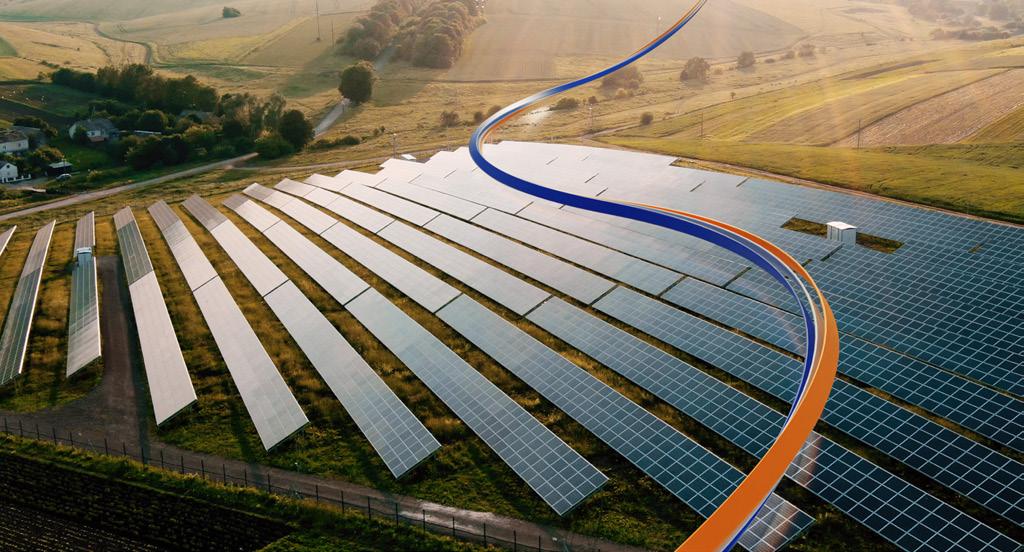
Our Approach
Minimizing our impacts on the planet while offering high-quality products to our customers is of the utmost importance to Quaker Houghton. Just as we seek to partner with responsible suppliers throughout our value chain, our customers also look to us to uphold sustainable business practices. We understand there can be negative environmental and societal impacts associated with non-renewable raw material use, and accordingly, we work to utilize renewable alternatives in our processes and products to support a more circular economy. Quaker Houghton’s R&D and product teams manage our efforts to increase the renewable content of our solutions with oversight from members of our ELT,
In 2022, we achieved our 2023 milestones ahead of target by establishing our virgin fossil-based raw materials baseline, mineral oil baseline, and Green Chemistry Guidelines globally Our baseline helped inform our recently adopted product transition roadmaps and allows us to clearly measure our progress toward our 2030 goal. Our Green Chemistry Guidelines address utilizing renewable feedstocks and re-refined base oils in our products, our preferred feedstock order, and the overall importance of careful raw material selection for product quality, functionality, safety, and affordability. Both accomplishments will enable us to make progress against our newly announced 2025 milestone, listed below:
x Establish 10 product roadmaps and begin 10 customer field trials which reduce virgin mineral oil usage.
As we work to achieve our 2025 and 2030 targets, we will continue focusing on our strategy to standardize the use of refined, recycled, and renewable raw materials in our products. While we currently utilize renewable raw materials (RRMs) in many of our solutions, in 2023, we launched several product transition roadmaps that address
replacing, reducing, or removing virgin mineral oil in our products and contain specific initiatives and timelines to further improve our portfolio.
Beyond our product transition roadmaps, Quaker Houghton’s renewable resource team engages suppliers that process renewable resources and sets key performance indicators and goals for these relationships in support of our overarching sustainability strategy. In 2023, we continued to encourage our suppliers to utilize alternative raw materials with lower carbon footprints. In partnership with our suppliers and supported by our internal plans, processes, and policies, we will continue driving progress toward our 2030 goal and reducing our impacts.

20.7%
renewably based HIGHLIGHT
In 2023, 20.7% of our raw materials were renewably based

7% used in our products were procured from re-refined sources in 2023 of total mineral oils
Quaker Houghton’s Sustainability Portfolio: QH CUTMAX™ E
Solutions within Quaker Houghton’s sustainability portfolio demonstrate how we formulate with renewable raw materials. For example, our QH CUTMAX™ E series neat cutting oils are made using renewable resources and are biodegradable.
Further, the high-performance technology of our QH CUTMAX™ E series neat cutting oils generate improvements in operational efficiency and health and safety. By reducing filter material and oil consumption, our neat cutting oils help our customers realize sustainability benefits in application. From a

PROTECTING
Our Planet
To reduce negative impacts on the environment, Quaker Houghton actively strives to improve waste, water, energy, and fuel use.


Reducing Our Greenhouse Gas Emissions
2030
GOALS
Achieve carbon neutrality in our global operations
Our Approach
Reducing GHG emissions is integral to Quaker Houghton’s commitment to the environment, to meeting the needs of our customers, and to our overall business success. We aim to reduce our scope 1 and 2 emissions and work with our value chain to reduce our scope 3 emissions.

Quaker Houghton’s Board Sustainability Committee maintains oversight of our environmental commitments. Specific initiatives are managed and implemented by the Protecting Our Planet team, our Energy and GHG Emissions Manager, local operations, EHS colleagues, and Site Champions who also utilize our global data management platform and global playbooks to track fuel usage, energy usage, emissions, and global emissions guidelines.
In 2023, each of our manufacturing sites implemented two energy reduction projects and we realized hundreds of impactful ideas generated by individuals across the globe. Site Champions are responsible for recording proposed, approved, and implemented initiatives in our global project database, and are allocated a budget to successfully bring these ideas to life. Out of the 200+ projects that were implemented in 2023, 95 were energy-related. Two impactful projects to date have included upgrading a 20+ year old burner at our Rio de Janiero site with a new, high
efficiency burner, and installing a high-speed ramp door at our Middletown site. The new ramp door opens and closes based on motion sensors, preventing heat loss from being open for extended periods of time.
Renewable energy is also critical to Quaker Houghton’s GHG reduction goals, and in 2022 we achieved our 2023 milestone to source and purchase through contracts at least 50% renewable/zero GHG emission electricity globally. In 2023, we continued to build on this progress by installing our first-ever on-site solar generating systems.
In our Dahej, India manufacturing plant, solar panels with a 230 kWh capacity were installed on the facility’s roof. They are projected to reduce grid electricity consumption by 74%, which is estimated to eliminate approximately

71% of Quaker Houghton’s electricity is sourced renewably via grid, solar panels, and purchased contracts
Set science-based targets to achieve net zero greenhouse gas emissions across our value chain by 2050
Adopting Energy Monitoring Software at Quaker Houghton’s Top Electricity Consuming Sites
50% of the site’s total GHG emissions. Solar panels were also installed at our Melbourne, Australia manufacturing plant. At this location, the solar panels have a capacity of 30 kWh and can power the site with up to 25% solar electricity—which has resulted in an estimated 20% reduction in GHG emissions. Further, 12 of our sites currently utilize renewable energy credits or have entered renewable energy contracts.
Quaker Houghton has also conducted an analysis of our scope 3 emissions. We have mapped the sources of those emissions and begun the process of collecting data for material categories. We look forward to further expanding our efforts to reduce our scope 1, 2, and 3 emissions as we work toward our 2025 milestones, listed below:
x Reduce scope 1 and 2 GHG emissions per revenue ($) by 35%.
x Complete a scope 3 GHG emissions assessment.
x Standardize RC 14001 certifications in U.S. manufacturing and lab locations.
For additional information about Quaker Houghton’s climate-related risks and opportunities, please see our TCFD Index
More than one-third of Quaker Houghton’s direct GHG emissions are from electricity consumption. To supplement our global data management platform, in 2023 our 11 highest electricity consuming locations adopted an energy monitoring software that collects and analyzes data on energy consumption to provide useful information to these sites—such as the consumption for specific zones or pieces of equipment at their location. This intel allows site leaders to make decisions and adjustments in their equipment and/or processes to conserve electricity. At the site where the software was first piloted in 2022, we saw 9% of electricity saved as a result.
In addition to helping reduce energy use and GHG emissions, this investment should also

Managing Our Water Responsibly
2030 GOALS
Reduce water consumption per revenue ($) by 20%
Our Approach
Water is a critical resource within Quaker Houghton’s operations, for our customers, and in our communities. In turn, responsible water use is beneficial for our business and our stakeholders for several reasons—including a lower cost burden of purchasing water, treatment of less wastewater, and reduced compliance risks. Our Board Sustainability Committee and Protecting Our Planet team oversee our efforts to conserve water, improve water-use efficiency, and increase the safety and recyclability of potential effluents. These initiatives are advanced at the site level by Site Champions who track our progress and performance via our global data management platform.


Across our business we have global guidelines outlining legal requirements regarding wastewater and local site playbooks to guide water and wastewater management. In addition to these global and local policies and procedures, external certification of our environmental management system is critical to Quaker Houghton’s approach to managing our water responsibly. This year, we achieved our 2023 milestone by standardizing ISO 14001 certifications in all non-U.S. manufacturing sites. We also certified four of our U.S. sites to RC14001, and as a member of the American Chemistry Council (ACC), we committed to improve environmental, health, and safety performance through
the implementation of the Responsible Care® (RC) management system. Both of these accomplishments showcase the quality and robustness of our water management practices and will support Quaker Houghton in continuing to utilize water resources efficiently.
As part of our compliance with regional regulations and best practices, we plan to invest in wastewater treatment plant upgrades. We have identified opportunities to improve wastewater treatment at two locations in Europe. Those efforts have begun and will be completed in mid-2024.1
1
Driving Water Efficiency in South America
To further drive progress across our footprint, in 2023 each Quaker Houghton owned or operated manufacturing site was required to implement one project to reduce water use. This initiative resulted in strong employee engagement, a variety of creative ideas, and effective implementation. Similar to the energy-related initiatives described in the previous section, Site Champions are responsible for recording proposed, approved, and implemented waterrelated initiatives in our global project database, and are allocated a budget to action these efforts. Out of the 200+ projects that were implemented in 2023, 34 were water-related. Particularly impressive projects have included reusing about 144 KL of caustic water per year from other manufacturing processes to clean equipment in India, replenishing a fishpond with 500 KL of reverse osmosis concentrate water per year at our Songjiang plant in China, and reducing effluent emissions by covering rainfall entrances in South America. We look forward to seeing how these efforts continue to improve our water-related performance and move us toward achieving our newly launched 2025 milestones, listed below:
x Reduce water consumption per revenue ($) by 10%.
x Standardize RC 14001 certifications in U.S. manufacturing and lab locations.

132.31 kg/ $1,000 revenue
In 2023, Quaker Houghton recorded 132.31 kilograms of process water per $1,000 in revenue ($)
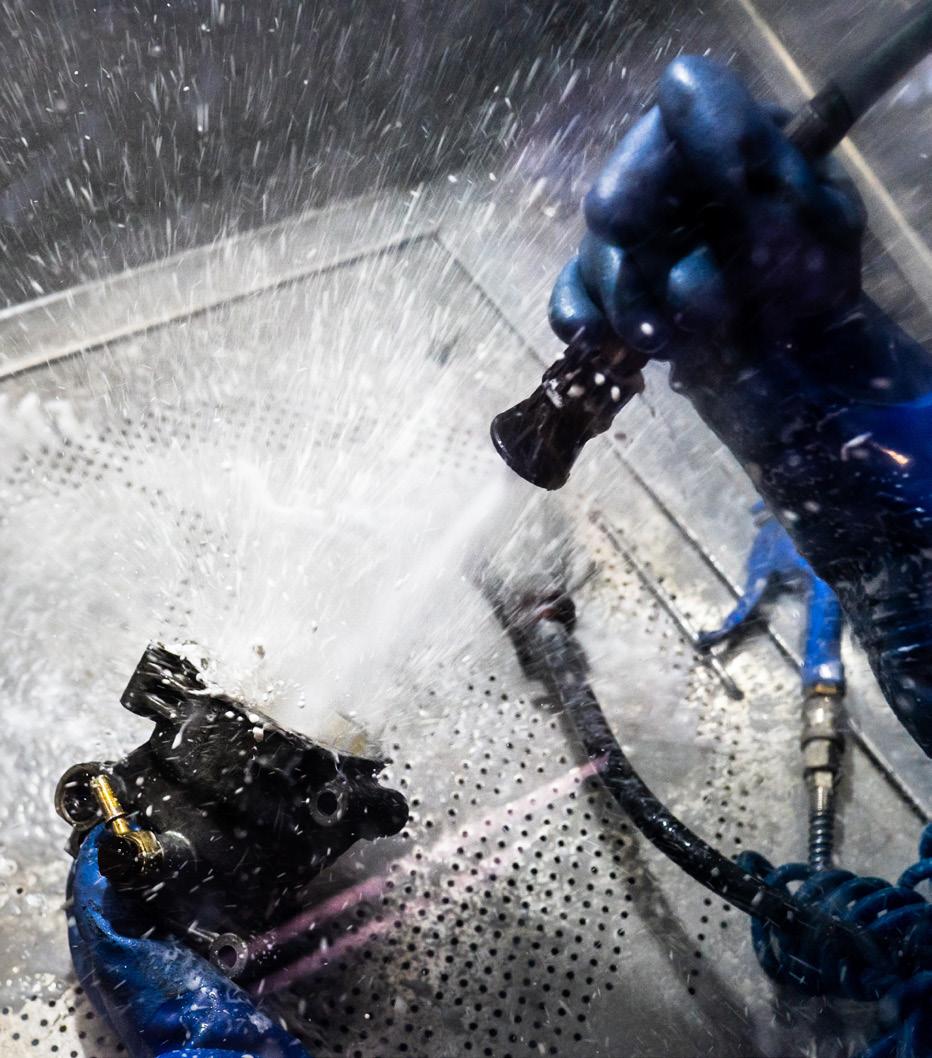
Quaker Houghton’s South American colleagues engaged in a particularly successful initiative to reduce water use. Our Rio de Janeiro team implemented a project which used pressurized water hoses to provide a more efficient way to clean equipment and significant savings in water use. In 2023, this enabled a 30% reduction in water consumption in South America compared to the 2019 baseline. We plan to continue investing in these process improvements at other sites.
Minimizing Our Waste
2030 GOALS

20%
Reduce waste to landfill and hazardous waste per revenue ($) by 20%

Our Approach
Quaker Houghton works to minimize and responsibly manage the waste generated in our operations and in the use of our products. Strong waste management practices limit our impact on the environment and are also important to many of our stakeholders— including regulators, customers, and communities. Our commitment to reducing waste also demonstrates the value we place on finite raw materials utilized in our operations, supports our compliance with waste-related regulations, and can reduce expenses associated with waste management and treatment. Similar to our water management initiatives, Quaker Houghton’s Board Sustainability Committee and Protecting Our Planet
team oversee our efforts to minimize waste, with site-level management and compliance with local waste disposal regulations driven by Site Champions and tracked in our global data management platform, DevonWay.1
Decreasing waste generated in our production processes and diverting waste from landfills are key objectives of our waste management efforts. These objectives are supported by ISO 14001 certifications, which we now maintain at all our non-U.S. manufacturing sites—marking the achievement of one of our 2023 milestones. In 2023, we also certified four of our U.S. sites to RC14001, and as a member of the American Chemistry Council (ACC), we committed to improve environmental, health, and safety performance through the implementation of the Responsible Care® (RC) management system.

2,000 metric tons
Approximately 2,000 metric tons, or 41%, of hazardous waste recycled in 2023
ISO and RC certifications attest that Quaker Houghton’s environmental management system is comprehensive, which helps us continually improve our waste performance. The practices that enabled us to achieve ISO and RC certifications also lay the foundation for progressing towards our 2025 milestones, listed below:
x Reduce waste to landfill and hazardous waste per revenue ($) by 10%.
x Standardize RC 14001 certifications in U.S. manufacturing and lab locations.
Quaker Houghton’s global waste guidelines and local site playbooks further support the achievement of our milestones and goals, proper handling and disposal of waste, and compliance with waste-related regulations.
With these policies, procedures, and certifications as our foundation, each of our manufacturing sites were required to introduce at least one hazardous waste reduction project and one waste to landfill reduction project in 2023. Just like the energy- and water-related initiatives discussed in earlier sections of the report, Site Champions are responsible for recording proposed, approved, and implemented wasterelated initiatives in our global project database, and are allocated a budget to make these ideas happen. Out of the 200+ projects that were implemented in 2023, 26 were related to hazardous waste and 52 were related to waste to landfill. Our colleagues developed and executed a variety of successful projects, including reducing single-use cups by providing mugs for office employees, reducing waste to landfill by switching to a recyclable material in one of our products, and decreasing the amount of waste oil from manufacturing processes by altering our production methods.
1 DevonWay is an external software utilized by Quaker Houghton.
Reducing Waste Through Product Recovery
Quaker Houghton’s Ultraseal technology is stable in storage—meaning that used, residual materials still have value even when facilities close or production ceases. To date, we have recovered four tons of the sealant from customer locations that are closing or moving, and expect to recover more. Recovering this material diverts it from landfill and reduces the amount of new, fossil-based material needed for making sealants. Because this material is recyclable, preventing these sealants from going to landfill represents a significant raw material reduction as it can be reused over and over.


EMPOWERING
Our Colleagues and Communities
Quaker Houghton maintains an unwavering commitment to our colleagues’ engagement, safety, and professional development; advancing diversity, equity, and inclusion; and supporting the communities where we live and work.


Empowering Our Colleagues to Live Safe 2030 GOALS
Our Approach
Safety is critical to the Quaker Houghton culture: we believe everyone has a role to play in protecting themselves and those around us. In our offices, laboratories, manufacturing sites, and customer facilities, we tailor our programs, policies, and systems to promote positive safety behaviors and identify potential risks before they happen. At Quaker Houghton, safety is not only seen as a matter of compliance, but as a business enabler and differentiator.

three-year cycle in partnership with a third-party consultant to support our compliance with EHS regulations. In combination with our key safety programs, processes, and policies, the practices supported by these third-party standards contributed to the early accomplishment of our 2023 milestone to achieve zero recordable incident rates with more than 5 lost workdays at 96% of Quaker Houghton and customer locations.
Quaker Houghton utilizes a digital platform to track and report on global EHS metrics and performance, including leading indicators that help us to understand, correct, and avoid accidents. In 2023, we retired our previous platform and transitioned fully to DevonWay, where we also maintain documentation related to risk assessment.
Celebrating Global Safety Week
Led by our EHS organization and senior management teams with regular oversight by the Board of Directors, the Board Sustainability Committee, and the ELT, Quaker Houghton is deeply committed to providing the resources and facilitating the engagement needed to make our organization, infrastructure, and equipment as safe as possible. Further, each manufacturing site has an assigned EHS partner responsible for measuring its safety performance and driving safety programs, including training, risk assessments, and applying our Lifesaving Rules.
Our key safety programs, Lifesaving Rules, Stop Work Authority, Incident Management and Reporting Policy, and global EHS policy manual work together to help ensure safe conditions at our own sites as well as our customer sites. In 2023, we further embedded our global EHS policy manual
by supplementing our global guidelines with regional additions that are specific to the different contexts in which we operate. We also launched an awareness campaign to socialize and refresh awareness of our 10 Lifesaving Rules across our organization.
Third-party certifications are yet another important element of Quaker Houghton’s approach to upholding health and safety best practices. We maintain ISO 45001 certifications where possible, and in 2023, four of our U.S. sites were RC14001 certified. ISO 45001 is an internationally recognized framework for managing occupational health and safety risks, and RC14001 is a standard for meeting the American Chemistry Council’s (ACC) Responsible Care® (RC) management system requirements. Both certifications speak to the robustness of our approach to occupational health and safety management. In addition to upholding these standards, we also implement compliance audits on a

All Quaker Houghton colleagues received training on DevonWay to support our data collection, monitoring processes, organization-wide management, and ultimately prevention of incidents. We also introduced a new health and safety learning management system: dss+. The new application is easier to use, facilitating a more streamlined and effective EHS learning experience. Both leaders and employees can leverage our online safety training platform, in addition to hands-on learning experiences and on-site safety training, to help keep safety top of mind. The complete implementation of DevonWay and dss+ marked the achievement of our second “live safe” 2023 milestone: Standardize to global multilingual incident management and EHS learning platforms.
Safety performance results are key measures considered in the company’s annual cash incentive awards.
Quaker Houghton will continue to raise awareness of and ensure compliance with health and safety standards as we strive to achieve our newly announced 2025 milestones, listed below:
x Standardize ISO 45001 certifications globally.
x Achieve on average one leading indicator identified per colleague.

In April of 2023, Quaker Houghton celebrated our second Global Safety Week. During this event we focused on two of our Lifesaving Rules: “Drive Safe” and “Following Procedures when Operating or Near Moving Equipment.” “Drive Safe” was an important rule to feature, as almost every Quaker Houghton colleague spends time on the road. Additionally, there were dedicated activities for colleagues who work with or around forklifts and other moving equipment, which many colleagues encounter at our manufacturing sites and in customer locations.
Investing in Our People’s Growth and Development
2030 GOALS


Maintain a positive employment experience as demonstrated by our ability to attract, develop, and retain our colleagues1
Foster a growth-oriented environment for our colleagues by offering career development learning opportunities to our entire workforce (100%)
Our Approach
Quaker Houghton’s colleagues are our most significant differentiator. To ensure our success, we prioritize supporting and investing in the skills, talents, and expertise of our colleagues. In 2023, we established a human capital strategy to ensure we are delivering now while also planning for the future. This strategy is enabled by a business partner operating structure, talent investment frameworks and programs, and a focus on workforce planning. The Human Resources organization is responsible for enabling our human capital strategy with oversight from the Board’s Compensation and Human Resources Committee.
Our global performance management framework, learning and development programs, and organizational talent assessment process are core elements of Quaker Houghton’s talent investment efforts. The performance management process provides a standardized approach and cadence for evaluating colleague performance and identifying learning goals, action plans, and opportunities for professional development that are aligned with our overarching business strategy.
We started introducing values-based behaviors into our performance discussions and will further this focus in coming years. In 2023, 97% of colleagues participated in the performance management process.
Learning programs are another critical pillar of Quaker Houghton’s approach to colleague growth and development. In 2023, we introduced change management as a framework and capability to support both organizational and process changes. All Quaker Houghton colleagues were given the opportunity to participate in sessions to help lead and navigate change. Senior leaders were equipped with change playbooks and trained on leveraging these materials with their teams. Learning offerings also occurred with every human capital effort we launched in 2023, covering topics such as Total Rewards, differentiating performance, and mental health.
1 Measured by an index consisting of measures for attracting, developing, and retaining talent.
Quaker Houghton’s Global Internship Program
At Quaker Houghton, we believe it is important to provide all our colleagues with opportunities to learn and develop— from interns up to our leadership team. In 2023, we reinforced this belief with the launch of our global internship program. In addition to work experience, the eightweek program offered interns access to online learning, networking opportunities, and volunteer events. We are proud to have hosted 24 interns in three countries, including the United States, the Netherlands, and Brazil. We look forward to expanding upon this program in the future.


We place importance on developing our leaders at all levels—whether a colleague is leading themselves or others—and providing them with opportunities to enhance their effectiveness. Our leaders have access to various learning and development experiences, including our Quaker Houghton internal leadership development program “Make the Shift—Activate Your Role—Plan for Performance” (MAP) for new or first-time managers, performance and rewards training, and specialized opportunities for external coaching, leadership assessments, or external development programs. We also continued to invest in female and diverse talent through partnership with external leadership development firms focused on providing multi-faceted investments in these colleagues to accelerate their growth and development. Through our organizational talent review process, we work to identify the critical skills and capabilities needed to drive our collective success both now and in the future to deliver results.
Year round, the QH University platform provides further learning opportunities to our colleagues who are interested in pursuing courses that enhance their knowledge, skills, and competencies. We are pleased to share that Quaker Houghton’s commitment to learning and development at all levels of the organization has enabled us to reach both of our 2023 growth and development milestones: Achieve 100% participation in the company’s annual Code of Conduct training program and launch a global enterprise leadership development program with more than 50% annual participation by all new managers.
Ensuring we create, foster, and maintain a culture where every colleague can be their best self is a driving force in our engagement efforts. One component of our engagement strategy is employee surveys, and in 2023 we issued two surveys to understand colleague perspectives: a change management survey and a culture values survey.
We also prioritized efforts and investments around wellness and wellbeing. In 2023, Quaker Houghton partnered with an external global wellbeing platform, Virgin Pulse, which provides access to activities, tools, and resources on wellness topics, and celebrated World

On average, all leaders attended various learning and training offerings throughout the course of the year, including enhancing skills in topics like change management and coaching for performance.
Mental Health Day with enterprise-wide discussions and education. To further support colleague wellbeing, we enhanced our benefit offerings to provide paid parental leave for U.S. colleagues regardless of gender or birthing status and implemented a global family planning benefit in partnership with Carrot Fertility. Colleague engagement will remain an important element of Quaker Houghton’s people strategy as we work towards achieving our newly announced 2025 milestones, listed below:
x Continue providing a positive employment experience. We aim to achieve this by expanding opportunities for learning, development, engagement, and total rewards offerings for our employees.
x Foster a growth-oriented environment for our colleagues by offering leadership development opportunities to all leaders 1
1 Leaders/leadership is defined as anyone with at least one direct report.
Embracing Diversity, Equity, and Inclusion
2030 GOALS
Attain global workforce representation of between 25% and 27% women, with the same proportion of women represented in leadership globally

Our Approach

Quaker Houghton aims to foster a diverse, fair, and inclusive culture that mirrors our global organization. We value doing great things together in a way that makes everyone feel like they belong, regardless of their background or their role. This creates a stronger organization, ready to harness our colleagues’ diverse skills for innovation and success. Accordingly, Quaker Houghton provides equal employment opportunities and does not discriminate based on age, ethnicity, sex, sexual identity, disability/medical, race, religion, or sexual orientation. “Embrace Diversity” is one of our core values, and our unwavering commitment to diversity, equity, and inclusion (DEI) is further reflected as a core element in our Code of Conduct.
The Human Resources team at Quaker Houghton began building and implementing our DEI strategy in 2022 with oversight from the ELT and Board of Directors. In 2023, we continued to grow the team driving our DEI efforts with the launch of our Culture and Engagement Taskforce. While this group focuses on Quaker Houghton’s overall culture, a core objective is to support DEI initiatives, and therefore also functions as our Diversity and Inclusion Council. The taskforce comprises 17 representatives from across our departments who supported the launch of our culture survey and the collection of qualitative feedback through focus groups. They continuously communicate the voice of our colleagues in our future plans for culture and engagement. The team also supported the implementation of our global framework for colleague resource groups (CRGs) and introduced two new CRGs at Quaker Houghton: The NextGen Professionals CRG and the HiredPower CRG. Quaker Houghton’s original CRG, the Women’s Inclusion Network (WIN), continues to be active and hosted multiple events in 2023—including for International Women’s Day and World Mental Health Day. Notably, the efforts of our Culture and Engagement Taskforce and our new CRGs marked the completion of our 2023 DEI milestones: Establish a Diversity and Inclusion Council and implement 3–5 CRGs to foster inclusion.
Attain U.S. workforce representation of people from underrepresented ethnic groups between 25% and 27%
Alongside providing learning and engagement opportunities to colleagues within Quaker Houghton, we also recognize the importance of building an inclusive talent pipeline— and external partnerships play a key role in how we do this. For example, Quaker Houghton is a corporate member of Women in Manufacturing and a sponsor of the Women Automotive Network, both of which are organizations invested in supporting and promoting women in their respective industries. We are also a corporate supporter of the Future of STEM Scholars Initiative (FOSSI), an organization that strives to increase the presence of students currently underrepresented in the STEM talent pool. We are proud of our collaboration with these organizations and others, and believe they will be an important part of driving diversity in our industry and organization as we work towards our newly launched 2025 milestones, listed below:
x Increase global workforce representation of women overall and in leadership by 0.5% year over year.
x Increase our representation of people from underrepresented ethnic groups in our U.S. workforce by 0.5% year over year.
1 Leaders/leadership is defined as anyone with at least one direct report.
HIGHLIGHT STORY
Supporting Women in the Workplace
Quaker Houghton is committed to supporting our female colleagues. We reflect this commitment by providing select female leaders the opportunity to attend targeted, world-class external development programs. In 2023, we sponsored several high-potential colleagues to attend leadership development programs via Leader’s Edge, an executive coaching program. Our leaders participated in:
x A Leadership Experience for Black Women: A virtual program to support black women in building their leadership skills, cultivating a stronger understanding of workplace issues, and utilizing practical tools to drive results.

Supporting Our Local Communities’ Development
2030 GOALS
Enhance community impact by exceeding annual average volunteer engagement (participation), benchmarked against industry standards
Our Approach
Quaker Houghton cares deeply about supporting the places where we live and work. Volunteering and giving opportunities are important to our colleagues and contribute to the resilience of our communities.

Quaker Houghton’s Empowering Our Colleagues and Communities (EOCC) team drives our overall community engagement strategy, while regional sites and dedicated individuals coordinate local activities aligned with their interests and geographies.
The EOCC team introduced our global volunteerism approach and announced our paid time off policy for volunteering in 2022, formally launching the global approach in January 2023. Now, all full-time colleagues can take up to 16 hours per calendar year to volunteer for a non-profit or charity of their choice. The policy is supported by recommendations to our colleagues regarding volunteering opportunities, such as environmental conservation, STEM (Science, Technology, Engineering, Math) education, community health and safety, local community development, and creating opportunities for

underrepresented groups. In 2023, we saw our colleagues engage in a variety of volunteer activities focused on addressing childhood poverty, serving older adults, and restoring natural areas. We will continue to develop additional resources to help our colleagues identify and participate in volunteer opportunities.
At the end of 2023 we also partnered with YourCause, a new platform for corporate giving. This platform will enable Quaker Houghton to match employee donations, make grants to non-profits across the globe, and give to charitable contributions worldwide through our Quaker Houghton Foundation. Combined with our global volunteerism approach, the activation of YourCause marked the achievement of both of our 2023 milestones related to supporting our local communities’ development: Implement a global volunteerism program with standardized paid time off and relaunch the Quaker Houghton Foundation globally.
We aim to continue developing global volunteering and giving opportunities for all Quaker Houghton colleagues, building relationships with communities and community organizations, and driving meaningful impact. With our volunteerism policy firmly in place and new giving platform implemented, enabling our foundation to give globally, we look forward to making progress against our new 2025 milestone, listed below:
x Enhance community impact by exceeding annual average volunteer engagement (participation), benchmarked against industry standards. HIGHLIGHT STORY
Quaker Houghton’s Month of Giving
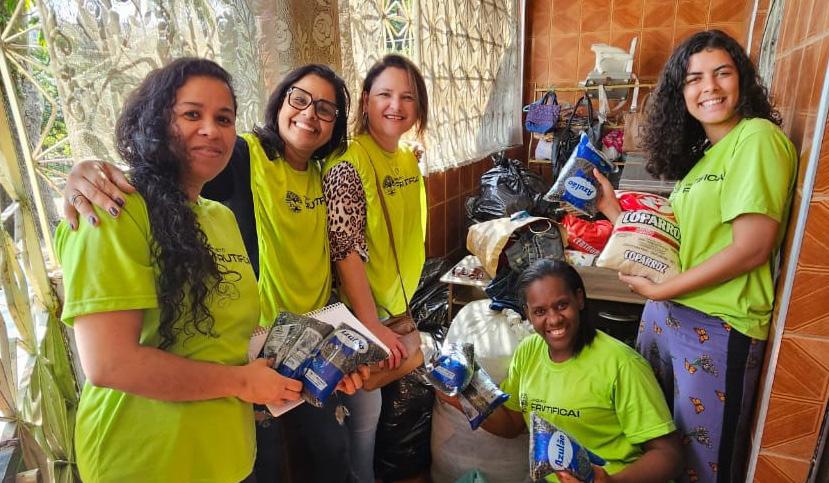
Our ambition is to make a significant impact in the places where we live and work. We aim to do this by encouraging colleagues around the world to utilize their 16 hours of paid time off to give back to their communities. In November 2023, Quaker Houghton had its first-ever Global Month of Giving, which focused on driving colleague volunteerism.
Our colleagues jumped into action—during that month, they participated in hundreds of hours of volunteer work and doubled our year-to-date recorded volunteering hours. Activities included cooking and donating meals for the food insecure in Pennsylvania, cleaning up beaches in the Netherlands, finishing a property in Michigan, supporting children in Brazil, and revitalizing playgrounds in the U.K.
We are proud of the outcomes of our inaugural Month of Giving and look forward to continuing this new tradition in the future.
SOURCING
Our Materials Responsibly
Quaker Houghton works diligently across our supply chain to source renewable raw materials and drive ethical and responsible practices.


Ensuring Everyone in the Supply Chain Is Treated With Dignity and Respect, Confirming Sustainable Sourcing of Raw Materials 2030 GOALS
75% Achieve 75% of total direct spend with suppliers that exceed our sustainability performance threshold


across our supply chain. Accordingly, our approach to responsible supply chain management is continually maturing alongside societal and stakeholder expectations. These efforts are managed by our global procurement team with oversight at the ELT and Board levels. In 2023
we further built out this team with the appointment of a new Senior Analyst for Supplier Sustainability who drives progress across the organization.
We hold our suppliers and subcontractors to high standards, which are outlined in both our Supplier Code of Conduct and the Quaker Houghton Code of Conduct.
Sustainable Palm Oil (RSPO). This certification assures our customers the palm oil we use in products manufactured in Uithoorn is 100% responsibly sourced. We are also pursuing certifications in 2024 for our locations in Qingpu, China and Santa Perpetua, Spain.
We have continued to expand our responsible palm oil sourcing efforts through 2023, which has involved building new supply chains and establishing routes to our production locations in certain regions. We plan to advance this effort to additional regions in the future and are pleased to announce our initiatives to date have enabled us to surpass our 2023 milestone of sourcing fully segregated palm oil for 50% of our global demand.
Quaker Houghton’s Senior Analyst for Supplier Sustainability

Our newly designated Senior Analyst for Supplier Sustainability is key in managing the ramp up of our sustainable supply chain efforts. With extensive sourcing experience, this Senior Analyst is poised to establish a robust and effective Supplier Sustainability Program at Quaker Houghton.
As we continue to gather data on supplier sustainability, we are excited to start working in partnership with our suppliers to improve their sustainability ratings.
Quaker Houghton also maintains external partnerships to assess our suppliers’ performance. We have partnered with EcoVadis since 2022 to assess the sustainability performance of our direct suppliers with over $100,000 spend. This year we focused on utilizing EcoVadis for data gathering and investigation to understand the current state of our supply base. In 2023 we also entered a partnership with Supplier IO to measure supplier diversity in the U.S. Our collaboration with Supplier IO and initial efforts to measure supplier diversity in the U.S. are just the first steps in our longer-term plans. By 2025, supplier diversity data sets from Supplier IO reports will be available to inform our procurement policy recommendations. Our policies, procedures, and partnerships have been foundational in the achievement of our 2023 milestones over the past two years. We have: ensured 100% of direct suppliers above $100K spend commit to Quaker Houghton’s Supplier Code of Conduct; incorporated supply chain human rights awareness into annual compliance training; implemented a global sustainability supplier assessment tool; and implemented a system to measure supplier diversity in our U.S. supply base.
With these practices in place, we are working to develop our sustainability performance threshold and drive progress towards our 2030 goal as well as our 2025 milestones, listed below:
x Achieve 50% of total direct spend with suppliers that exceed our sustainability performance threshold.
x Collaborate with targeted suppliers annually to strengthen their sustainability practices.
x Source fully segregated Palm Oil for 100% of our global supply.
x Implement a system to measure diversity in our global supply base.
x Certify Santa Perpetua and Qingpu sites through RSPO.




Quaker Houghton.
About This Report
Reporting Frameworks
Quaker Houghton has reported the information cited in the GRI content index for the period January 1, 2023–December 31, 2023, with reference to the GRI Standards.
Additionally, our SASB Index provides information or the location of information pertaining to the SASB Standards for the Chemicals industry. We do not report against all of the standards for the sector.
In 2023, Quaker Houghton continued to strengthen our alignment with the recommendations of the TCFD. Please see our TCFD Index for information regarding climate-related risks and opportunities at Quaker Houghton.
Report Scope
Quaker Houghton reports on our management of sustainability topics as determined by the materiality assessment conducted in 2020. The information in our report focuses on activities from January 1, 2023–December 31, 2023. The Data Tables in the appendix of the report also include fiscal years 2022 and 2021.
In 2023, we added Baron Industries, LLC into our environmental and safety data. We omit standalone offices or labs from our environmental data as they do not have a material impact.
Forward-Looking Statements
This report contains “forward-looking statements” that fall under the safe harbor provisions of the Private Securities Litigation Reform Act of 1995 and the Securities Act of 1933, as amended. These statements can be identified by the fact that they do not relate strictly to historical or current facts. We have based these forward-looking statements on assumptions, projections and expectations about future events that we believe are reasonable based on currently available information, including statements regarding the potential effects of the conflicts in Ukraine and the Middle East; inflation and global supply chain constraints on the Company’s business, results of operations, and financial condition; our expectation that we will maintain sufficient liquidity and remain in compliance with the terms of the Company’s credit facility; expectations about future demand and raw material costs; and statements regarding the impact of increased raw material costs and pricing initiatives. These forward-looking statements include statements with respect to our beliefs, plans, objectives, goals, expectations, anticipations, intentions, financial condition, results of operations, future performance, and business, which may differ materially from our actual results, including but not limited to the potential benefits of acquisitions and divestitures, the impacts on our business as a result of global supply chain constraints, and our current and future results and plans and statements that include the words “may,” “could,” “should,” “would,” “believe,” “expect,” “anticipate,” “estimate,” “intend,” “outlook, “target”, “possible”, “potential”, “plan” or similar expressions. A major risk is that demand for the Company’s products and services is largely derived from the demand for its customers’ products, which subjects the Company to uncertainties related to downturns in a customer’s business and unanticipated customer production slowdowns and shutdowns, including as is currently being experienced by many automotive industry companies as a result of supply chain disruptions. Other major risks and uncertainties include, but are not limited to inflationary pressures, including the potential for continued significant increases in raw material costs; supply chain disruptions; customer financial instability; rising interest rates and the possibility of economic recession; economic and political disruptions, including the impacts of the military conflicts between Russia and Ukraine and between Israel and Hamas; tariffs, trade restrictions, and the economic and other sanctions imposed by other nations on Russia and/or other government organizations; suspensions of activities in Russia by many multinational companies and the potential expansion of military activity; foreign currency fluctuations; significant changes in applicable tax rates and regulations; future terrorist attacks and other acts of violence; the impacts of consolidation in our industry, including loss or consolidation of a major customer; and the potential occurrence of cyber-security breaches, cyber-security attacks and other security incidents. Furthermore, the Company is subject to the same business cycles as those experienced by our customers in the steel, automobile, aircraft, industrial equipment, aluminum and durable goods industries. Our forward-looking statements are subject to risks, uncertainties and assumptions about the Company and its operations that are subject to change based on various important factors, some of which are beyond our control. These risks, uncertainties, and possible inaccurate assumptions relevant to our business could cause our actual results to differ materially from expected and historical results. All forward-looking statements included in this report, release, including expectations about business conditions during 2023 and future periods, are based upon information available to the Company as of the date of this report, which may change. Therefore, we caution you not to place undue reliance on our forward-looking statements. For more information regarding these risks and uncertainties as well as certain additional risks that we face, refer to the Risk Factors section, which appears in Item 1A of our Annual Report on Form 10-K for the year ended December 31, 2023, and in subsequent reports filed from time to time with the Securities and Exchange Commission. We do not intend to, and we disclaim any duty or obligation to, update or revise any forward-looking statements to reflect new information or future events or for any other reason. This discussion is provided as permitted by the Private Securities Litigation Reform Act of 1995.
2-3 Reporting period, frequency, and contact point This report was published on April 22, 2024, covers the 2023 calendar year, and is updated annually. For questions about the reported information, please contact Sarah Briggs; Director, Corporate Sustainability: sustainability@quakerhoughton.com
2-4 Restatements of information
In our 2022 Sustainability Report:
We have refined our approach to measure the usage of Fossil Fuels by transitioning from sales of finished goods methodology to a more precise measure of tracking the Raw Material Purchases throughout the year. In our previous report, limitations arose from varied ERP systems across our countries of operations, prompting us to consider only a subset of sales transactions. However, our consolidated purchasing data, harmonized across all countries, now provide a more accurate basis for calculating fossil fuel usage in our finished goods. In 2022, 36.7% of our raw materials were renewably sourced, this year 21% are renewably sourced using the refined approach.
Water per ton produced was reported as 479 kg/ton produced. This should have been reported as 469 kg/ton produced. Hazardous waste was reported as 13 kg/ton produced. This should have been reported as 12 kg/ton produced. The restated metrics are due to data entry errors and missing a site in scope. Moving forward to better account for our services, in addition to our products, we will be reporting the Protecting Our Planet KPIs in kg/$1000 in revenue. Using this methodology, the updated baseline shows waste to landfill as (1.05), hazardous waste as (3.16), and water consumption as (120.53).
Water stress was reported as 22% due to adding extremely high and medium high water stress areas, this should have been reported as 40% to account for extremely high and high-water stress areas.
This restatement is indicated in 2023 Data Tables by two asterisks (**).
GRI 2: General Disclosures 2021
2-11 Chair of the highest governance body
2-12 Role of the highest governance body in overseeing the management impacts
2-13 Delegation of responsibility for managing impacts
2-14 Role of the highest governance body in sustainability reporting
2-15 Conflicts of interest
2-16 Communication of critical concerns
2-17 Collective knowledge of the highest governance body
2-18 Evaluation of the performance of the highest governance body
2-19 Remuneration policies
2-20 Process to determine remuneration
2-21 Annual total compensation ratio
2-22 Statement on sustainable development strategy
2-23 Policy commitments
2-24 Embedding policy commitments
2-25 Processes to remediate negative impacts
2-26 Mechanisms for seeking advice and raising concerns
2-27 Compliance with laws and regulations
Please see our 2024 Proxy Statement
Please see the Who We Are and How We Manage Sustainability section of this report. Please also see our 2024 Proxy Statement
Please see the Who We Are and How We Manage Sustainability section of this report.
Please see the Who We Are and How We Manage Sustainability section of this report.
Please see our 2024 Proxy Statement
Please see our 2024 Proxy Statement
Each Board Sustainability Committee member has experience in overseeing environmental, social, and governance matters. In addition, Board Sustainability Committee members are provided materials at each meeting which support additional knowledge and skill development in this evolving landscape.
The Board of Directors conducts an annual self-evaluation each year.
Please see our 2024 Proxy Statement
Please see our 2024 Proxy Statement
Please see our 2024 Proxy Statement
Please see the Message From the CEO section of this report.
Quaker Houghton’s Code of Conduct requires adherence and compliance with all laws and regulations on human rights and all topics/matters globally.
The Legal Department works with all groups on all material policy commitments, but they are not housed in one place or controlled by the legal department.
The company’s Compliance Training includes elements of human rights compliance.
The Legal Department works with all groups on all material policy commitments, but they are not housed in one place or controlled by the legal department.
Please see our Code of Conduct.
Please see our Code of Conduct.
Quaker Houghton is fulfilling its compliance obligations.
GRI 2: General Disclosures 2021 2-28 Membership associations
2-29 Approach to stakeholder engagement
2-30 Collective bargaining agreements
MATERIAL TOPICS
GRI 3: Material Topics 2021 3-1 Process to determine material topics
3-2 List of material topics
MANAGING OUR WATER RESPONSIBLY
GRI 3: Material Topics 2021 3-3 Management of material topics
GRI 303: Water and Effluents 2018 303-1 Interactions with water as a shared resource
GRI 303: Water and Effluents 2018 303-2 Management of water discharge-related impacts
LOCATION OR DIRECT RESPONSE
While Quaker Houghton participates in many industry associations, the company is an active and corporate member of the American Chemistry Council and is Responsible Care certified in its U.S. locations.
Please see the Our Materiality Results section of this report.
38% of Quaker Houghton employees are covered by union/collective bargaining agreement.
Please see the Our Materiality Results section of this report.
Please see the Our Materiality Results section of this report.
303-3 Water withdrawal
303-5 Water consumption
Please see the Managing Our Water Responsibly section of this report.
Please see the Managing Our Water Responsibly section of this report.
Please see the Managing Our Water Responsibly section of this report. Quaker Houghton has contracted a 3rd party environmental consultant, GHD, to perform a wastewater risk assessment and develop a risk management plan. The report is expected to be completed by mid 2024.
Quaker Houghton in its use and treatment of water continues to pursue an overall goal of increased stewardship. In addition to reviewing wastewater management programs at the manufacturing sites, including use and treatment of water in water stressed areas, Quaker Houghton has developed a program of independent audits by outside experts at each manufacturing location and laboratory every three years. To date, 35 independent audits have been completed identifying a total of 44 findings, including findings associated with local water use compliance. Quaker Houghton is working diligently to close all of the audit findings in the coming year and manage the root cause of these findings for overall water stewardship improvement.
Quaker Houghton is now supplementing the audit program and continuing to work on global wastewater treatment compliance issues with developing plans to assess and implement water and wastewater use/handling requirements that take into account local standards and norms but are also consistent across the globe to our developing stewardship goals. This program is anticipated to include minimum wastewater characterization requirements, standards for third parties accepting and treating Quaker Houghton wastewater, minimum treatment standards and treatment processes. This program will be used as a basis to evaluate all Quaker Houghton manufacturing facilities and to prioritize facilities that represent a higher potential risk so that they may be evaluated further.
Please see the 2023 Data Tables included in this report.
Please see the 2023 Data Tables included in this report.
SASB Water Management
RT-CH-140a.1 Total water withdrawn, and percentage in regions with High or Extremely High Baseline Water Stress; Total water consumed
RT-CH-140a.2 Number of incidents of non-compliance associated with water quality permits, standards, and regulations
RT-CH-140a.3 Description of water management risks and discussion of strategies and practices to mitigate those risks
REDUCING OUR GREENHOUSE GAS EMISSIONS
of material topics
Please see the 2023 Data Tables included in this report.
Please see the 2023 Data Tables included in this report.
Please see the Managing Our Water Responsibly section of this report. Quaker Houghton has contracted a 3rd party environmental consultant, GHD, to perform a wastewater risk assessment and develop a risk management plan. The report is expected to be completed by mid 2024.
Please see the Reducing Our Greenhouse Gas Emissions section of this report.
Please see the 2023 Data Tables included in this report.
Please see the 2023 Data Tables included in this report.
Please see the 2023 Data Tables included in this report.
305-2 Energy indirect (Scope 2) GHG emissions GWP source used is IEA Emissions Factors: Database Documentation 2023 edition. GHG Protocol is the standard used and followed for methodologies and calculations. We account for CO2 CH4, N2O in our calculations and then convert those to total CO2e. The approach Quaker Houghton takes on calculations is operational control of all assets.
Please see the 2023 Data Tables included in this report.
305-4 GHG emissions intensity
305-5 Reduction of GHG emissions
RT-CH-110a.2 Discussion of long-term and short-term strategy or plan to manage Scope 1 emissions, emissions reduction targets, and an analysis of performance against those targets
RT-CH-130a.1 Energy consumption within the organization
Please see the 2023 Data Tables included in this report.
Quaker Houghton follows GHG Protocol standards for calculating scopes 1 and 2 emissions. We created an internal calculation tool to carry out our methodology. This tool is reviewed by a third party to ensure proper conversion factors, methodologies, calculations, and processes were used in calculating total emissions. Conversion factor sources include the following globally recognized organizations: International Energy Agency (IEA), Environmental Protection Agency (EPA), and GHG Protocol GWP values.
Please
Please see the Reducing Our Greenhouse Gas Emissions section of this report.
Please see the 2023 Data Tables included in this report.
MINIMIZING OUR WASTE
GRI 3: Material Topics 2021 3-3 Management of material topics
GRI 306: Waste 2020
306-1 Waste generation and significant waste-related impacts
306-2 Management of significant waste related impacts
306-3 Waste generated
306-4 Waste diverted from disposal
SASB Hazardous Waste Management
RT-CH-150a.1 Amount of hazardous waste generated, percentage recycled
EMPOWERING OUR COLLEAGUES TO LIVE SAFE
GRI 3: Material Topics 2021 3-3 Management of material topics
GRI 403: Occupational Health and Safety 2018
403-1 Occupational health and safety management system
Please see the Minimizing Our Waste section of this report.
Please see the 2023 Data Tables included in this report.
Please see the 2023 Data Tables included in this report.
Please see the 2023 Data Tables included in this report.
Please see the 2023 Data Tables included in this report.
Please see the 2023 Data Tables included in this report.
Please see the Empowering Our Colleagues to Live Safe section of this report.
All of our sites operate under a health and safety management system. All employees and workers, regardless of activity, are covered by that system. We are currently in transition from meeting regulatory requirements and implementing some best practices towards implementing internationally recognized risk management standards/guidelines and certification. In 2022, we developed a Global EHS policy manual (with +40 procedures), which was rolled out at the local level in 2023. In addition to abiding by the health and safety management system and global EHS policy manual, each site follows the Quaker Houghton 10 life saving rules. In 2023, Quaker Houghton switched to the DevonWay Software solutions as the EHS management systems platform. All EHS incidents, near misses, and observations are now entered into the DevonWay incident management module. DevonWay is also used for document control of all EHS policies & procedures.
Quaker Houghton uses a combination of job descriptions, standard operating procedures (SOP’s), EHS policy & procedures, and job task risk assessments to define workers’ activities. These documents are managed via the DevonWay document control module.
LOCATION OR DIRECT RESPONSE
GRI 403: Occupational Health and Safety 2018
403-2 Hazard identification, risk assessment, and incident investigation
403-3 Occupational health services
403-4 Worker participation, consultation, and communication on occupational health and safety
There are multiple processes we follow to identify work-related hazards and assess risks on a routine and non-routine basis. These include:
x Job Task Risk Assessment (JTRA)
x Stop work authority
x Incident management system
x Last Minute Risk Assessment (LMRA)
x Audit process
x Inspection of equipment, processes, or work procedures to determine if operating conditions are within acceptable limits
x Observation via formal, in-person evaluation of a job task or work procedure while it’s being performed in its entirety; assess behaviors, conditions, and overall work processes to determine compliance with regulatory requirements or other defined parameters
We ensure the quality of these processes and the competency of the individuals through internal audit and performance reviews of EHS trained staff. We tie the results to KPIs which are connected to a monthly report. Both individual and/or global EHS goals are built into every Quaker Houghton colleague’s objectives.
Potential hazards and hazard situations are reported by all workers through our leading indicators of Hazard ID, Near Misses, and observations in the new platform, DevonWay. DevonWay was implemented to improve the end-user experience for reporting, but also the tracking of hazards and hazard situations. This will help to optimize communication across regions, avoid similar hazards, and reduce the closure time.
If a hazard does occur, the reporting individual is empowered by the CEO and the rest of the organization to stop work under the Stop Work Authority Program. The company also has an Incident Management Policy in place which describes the process for workers to remove themselves from work situations they believe could cause injury or ill health. There is public recognition for colleagues who identify and stop potential hazards from occurring, as health and safety leadership routinely communicates these hazards identified through intercompany communications.
The dedicated EHS staff, who are screened and trained professionals, are accountable for the implementation of EHS processes and programs, including occupational health services. The EHS staff track leading indicators which are accessible in our EHSQ management system to ensure the quality of these services. We have implemented Job Task Risk Assessments (JTRA) for tasks performed on a routine basis, and Last Minute Risk Assessments (LMRA) for non-routine tasks. The purpose of these procedures is to define the methods and guidelines for assessing and addressing Safety, Environmental and Security risks at Quaker Houghton facilities.
Federal, state and local legislation, as well as international standards that Quaker Houghton subscribes to, require that Safety, Environmental and Security risks be evaluated and appropriate risk mitigation actions be initiated to prevent safety, environmental and security incidents. Typically, this is performed using a risk assessment. Employees are trained on each JTRA and LMRA when they have to perform related tasks.
Quaker Houghton has implemented an EHS compliance audit program which contracts a 3rd party EHS consulting firm, GHD, to verify the quality of the occupational health services and programs for eliminating hazards and mitigating risks in the work environment. Critical Quaker Houghton locations are generally audited on a 3 year cycle.
Supporting ISO 45001 requirements for site Safety Committees, CORP-P-EHS-0015 defines protocols for sites to implement Safety Committees Furthermore, there are several EHS policies defining worker participation and consultation, examples are: CORP-P-EHS-0004 defines incident management & reporting, CORP-P-EHS-0005 defines workers authorization for Stop Work action, and CORP-P-EHS-0026 defines works responsibilities and participation in completing hazardous work permitting.
GRI 403: Occupational Health and Safety 2018
SASB Workforce Health and Safety
403-5 Worker training on occupational health and safety
LOCATION OR DIRECT RESPONSE
Our learning management system is used to train our colleagues globally. It includes training on generic and specific work-related hazards, hazardous activities, or hazardous situations. These trainings are often job specific but include topics such as: Disaster Planning and Response, Fire Safety, Ergonomics, Accessing Medical Reports, etc. Training is also provided via SABA. In 2022, the EHS team organized several safety standdown and training sessions at sites and virtually. We also organized our first Global Safety Week, during which several events and training sessions took place to increase safety awareness and engagement.
For workers who are not employees of Quaker Houghton, training is left to the discretion of their employer, but is required to align with our standards.
SASB Operational Safety, Emergency Preparedness and Response
403-7 Prevention and mitigation of occupational health and safety impacts directly linked by business relationships
403-8 Workers covered by an occupational health and safety management system
RT-CH-320a.1 Total recordable incident rate (TRIR) and (2) fatality rate for (a) direct employees and (b) contract employees
RT-CH-320a.2 Description of efforts to assess, monitor, and reduce exposure of employees and contract workers to long-term (chronic) health risks
Our organization has placed focus on monitoring leading indicators and implementing audit programs that ensure we uphold an effective EHS program that mitigates negative occupational health and safety impacts. Setting KPIs and goals around the leading indicators we monitor helps us to address specific items, and to identify and manage larger, more systemic issues before they become an incident.
All sites operate under an occupational health and safety management system, and 100% of employees and workers are covered by that system.
Some of our sites are audited by a third party. In addition, many of our sites are ISO45001 or RC14001 certified, and we aspire to have all wholly owned manufacturing facilities certified by end of 2025.
Please see the 2023 Data Tables included in this report. Sites maintain site-specific contractor management systems, including visitor/contractor safety training. DevonWay incident reporting module provides a system for reporting and tracking contractor injuries.
At Quaker Houghton we perform several assessments to prevent long-term (chronic) health risks, such as chemical risk evaluations and controls of water (legionella), air quality or noise levels. All our employees and operators wear personal protective equipment as recommended in the JTRA and LMRA.
We are taking action to implement low risk solutions, prevent access to potentially hazardous environments, and organize our work to reduce exposure to hazards as much as possible.
RT-CH-540a.1 Process Safety Incidents Count (PSIC), Process Safety Total Incident Rate (PSTIR), and Process Safety Incident Severity Rate (PSISR)
RT-CH-540a.2 Number of transport incidents
INVESTING IN OUR PEOPLE’S GROWTH AND DEVELOPMENT
Please see the 2023 Data Tables included in this report.
Please see the 2023 Data Tables included in this report.
GRI 3: Material Topics 2021 3-3 Management of material topics
GRI 405: Diversity and Equal Opportunity 405-1 Diversity of governance bodies and employees
SUPPORTING OUR LOCAL COMMUNITIES’ DEVELOPMENT
GRI 3: Material Topics 2021 3-3 Management of material topics
GRI 413: Local Communities 2016 413-1 Operations with local community engagement, impact, assessments and development programs
SASB Community Relations RT-CH-210a.1 Discussion of engagement processes to manage risks and opportunities associated with community interests
Please see the Embracing Diversity, Equity, and Inclusion section of this report.
Please see the 2023 Data Tables included in this report.
Please see the Supporting Our Local Communities’ Development section of this report.
While the infrastructure for global tracking and consolidation is still under development, progress has been achieved in tracking local volunteering efforts in 2023. We anticipate enhancing our capabilities to provide comprehensive reporting on local community engagement, impact assessments, and development programs within the next two years.
In 2023, Quaker Houghton introduced a global approach to volunteerism to give back to the communities where we live and work, build trusting relationships, and grow together as a team. Our Empowering Our Colleagues and Communities team and company leaders have worked to create a global volunteering standard for Quaker Houghton to ensure that we manage risks and opportunities associated with community interests.
GRI 3: Material Topics 2021 3-3 Management of material topics
Please see the Ensuring Everyone in the Supply Chain Is Treated With Dignity and Respect, Confirming Sustainable Sourcing of Raw Materials section of this report. GRI 308: Supplier Environmental Assessment 2016 308-1 New suppliers that were screened using environmental criteria
Please see the 2023 Data Tables included in this report. 308-2 Negative environmental impacts in the supply chain and actions taken
GRI 3: Material Topics 2021 3-3 Management of material topics
GRI 416: Customer Health and Safety 2016
Assessment of the health and safety impacts of product and service categories
Please see the 2023 Data Tables included in this report.
Please
Please see the Minimizing Hazards in Our Portfolio section of this report.
Product Stewardship evaluates all Quaker Houghton finished goods and creates Globally Harmonized System of Classification and Labelling of Chemicals (GHS) compliant Safety Data Sheets (SDS) for all of our products globally. These customer facing documents ensure customers understand the potential hazards and mitigate the risk of misusing our products. Should a customer have questions or concerns relating to our product, our product stewardship team is available to consult and help our customers make the best product choices for their needs and understand proper use and disposal.
Please also see the 2023 Data Tables included in this report.
SASB Safety & Environmental Stewardship of Chemicals
RT-CH-410b.a (1) Percentage of products that contain Globally Harmonized System of Classification and Labeling of Chemicals (GHS) Category 1 and 2 Health and Environmental Hazardous Substances, (2) percentage of such products that have undergone a hazard impact
RT-CH-410b.2 Discussion of strategy to (1) manage chemicals of concern and (2) develop alternatives with reduced human and/or environmental impact
Please see the 2023 Data Tables included in this report.
Quaker Houghton aspires to achieve 100% of finished goods not classified as GHS Category 1A/B CMR hazards by 2030.1 The Innovating Together for a Better Tomorrow team has determined the 2021 baseline, developed a high-level roadmap for all GHS category 1A/B CMR finished goods, and a specific one for finished goods using Hexavalent chromium.
The Innovating Together for a Better Tomorrow team began in 2022 on determining and implementing a strategy to reduce those hazards in our portfolio. This work continued in 2023. The Product Stewardship team works with operations to determine appropriate labeling and PPE required for management of chemical hazards.
In 2023, additional roadmaps were developed, processed, and implemented. The status of these roadmaps will be reported on a quarterly basis. Our Product Stewardship team continues to work with operations to determine appropriate labeling and PPE required for management of chemical hazards. The introduction of the Green Chemistry Guidelines should reduce human and environmental hazards beyond our focus of GHS Category 1A/B CMR hazards and virgin fossil based raw materials. The preferred raw material list was also introduced in 2023 and will also support this initiative.
ECONOMY
GRI 3: Material Topics 2021 3-3 Management of material topics
Please see the Transitioning Our Solutions to Support a Low-Carbon Economy section of this report. FORMULATING WITH RENEWABLE RAW MATERIALS
GRI 3: Material Topics 2021 3-3 Management of material topics
GRI 301: Materials 2016 301-2 Recycled input materials used
SASB Air Quality
SASB Management of the Legal & Regulatory Environment
RT-CH-120a.1 Air emissions of the following pollutants: (1) NOX (Excluding N2O, (2) SOX (3) volatile organic compounds (VOCs), and (4) hazardous air pollutants (HAPs)
RT-CH-530a.1 Discussion of corporate positions related to government regulations and/or policy proposals that address environmental and social factors affecting the industry
Please see the Formulating With Renewable Raw Materials section of this report.
Please see the 2023 Data Tables included in this report.
Quaker Houghton plans to track and report criteria pollutants from the combustion of fossil fuels and natural gas in 2025. Quaker Houghton does not report criteria pollutants from operations as the volumes are immaterial. This is due to the relative low emissions of VOCs and HAPs in the materials in Quaker Houghton’s manufacturing processes & products.
Although our organization supports the mitigation of climate change and environmental protection, we do not take any formal corporate positions on government regulations.
1 GHS category 1 A/B (Not including Category 2 and Carcinogens, Mutagens, and Reproductive Hazards in Category 1 A/B that were tested by oral route of exposure).
LOCATION OR DIRECT RESPONSE
VOLUNTARY DISCLOSURES
QMS Certifications Percentage of QMS Certifications
EMS Certifications Percentage of EMS Certifications
Bribery and Corruption Policy Commitments made to mitigate risks posed by bribery and corruption
Corporate Governance Independent Board Chair
Remuneration of members of the executive management team
Integration of sustainability performance objectives into the variable remuneration of members of the executive management team
Please see the 2023 Data Tables included in this report.
Please see the 2023 Data Tables included in this report.
Our policies on bribery and corruption, and specifically our compliance with the Foreign Corrupt Practices Act, are set forth in our Code of Conduct, which is published on our website.
Please see our 2024 Proxy Statement
Please see our 2024 Proxy Statement
Disclose the organization’s governance around climate-related risks and opportunities.
a. Describe the board’s oversight of climate-related risks and opportunities.
b. Describe management’s role in assessing and managing climate-related risks and opportunities.
STRATEGY
Disclose the actual and potential impacts of climate-related risks and opportunities on the organization’s businesses, strategy, and financial planning where such information is material.
a. Describe the climate-related risks and opportunities the organization has identified over the short-, medium-, and long-term.
b. Describe the impact of climaterelated risks and opportunities on the organization’s businesses, strategy, and financial planning.
c. Describe the resilience of the organization’s strategy, taking into consideration different climate-related scenarios, including a 2°C or lower scenario.
Three
risks. We are currently developing the strategy for circulating the results of the scenario analysis with our leadership teams and discussing our approach to material risks and opportunities
Additional details on Board and Management oversight of and responsibility for climate-related risks and opportunities are available in the following sections of the 2023 Sustainability Report: Who We Are and How We Manage Sustainability; Reducing Our Greenhouse Gas Emissions; Managing Our Water Responsibly and Minimizing Our Waste.
Quaker Houghton recognizes that both transitional and physical climate-related risks and opportunities may impact and influence our business. During the summer of 2023, we conducted a scenario analysis to identify climate-related risks and opportunities over three different future time horizons. We defined short-term as 0 to 3 years, medium-term as 3 to 7 years, and long-term as 8 or more years.
Physical Risks and Opportunities
As climate change exacerbates the frequency and severity of acute hazards, such as hurricanes and flooding, it could pose a direct threat to Quaker Houghton’s infrastructure, operations, and personnel safety. Weatherrelated events may lead to costs in the form of physical damage to facilities, as well as business interruptions to our manufacturing process. Severe weather events could create unsafe working conditions, and in response, there may be increased work stoppages. Changes in chronic hazards, such as extreme heat and drought, could put a strain on access to electricity and water, potentially leading to increased operating costs. Physical climate risks in regions where our suppliers operate can disrupt the supply chain, affecting the availability and costs of raw materials.
Transition Risks and Opportunities
Policy and legal risk, such as carbon pricing schemes enacted in countries where Quaker Houghton produces, and market risks, like volatility in raw material pricing, were identified as the most pertinent transition risks. These risks could impact our operating expenses, revenues, capital expenses and financing options. Identified opportunities include increased demand for our products in developing markets, such as supporting the transition from internal combustion engine (ICE) vehicles to electric vehicles, and improving our processes to be more energy and water efficient.
We are currently developing the strategy for circulating the results of the scenario analysis with our leadership teams and discussing our approach to material risks and opportunities.
RECOMMENDATION RESPONSE
RISK MANAGEMENT
Disclose how the organization identifies, assesses, and manages climate-related risks.
a. Describe the organization’s processes for managing climate-related risks.
b. Describe how processes for identifying, assessing, and managing climate-related risks are integrated into the organization’s overall risk management.
As part of the scenario analysis, physical and transition risks were assessed to determine our exposure to climate-related risks. In line with TCFD recommendations, potential acute and chronic hazards were reviewed to identify physical risks that could impact our operations. The physical risk analysis was conducted using two warming scenarios issued by the Intergovernmental Panel on Climate Change. The low warming scenario, referred to as SSP1-2.6, assumes mean global temperature rise remains below a 2°C increase by the end of the century. In contrast, the higher warming scenario, SSP3-7.0, depicts a trajectory in which the global temperature rises 4°C and climate impacts are heightened.
Risks pertaining to policy, legal, market, technology, and reputational matters were assessed to identify climate-related transition risks and opportunities. The transition risk analysis was conducted with two scenarios from the International Energy Agency’s World Energy Outlook. The Stated Policies Scenario (STEPS) results in an expected temperature rise of around 2.5°C, and the Announced Pledges Scenario (APS) results in an expected temperature rise of around 1.7°C.
Climate-related risks are also included in our enterprise risk management process. Annually, Quaker Houghton’s Risk Manager engages with our leaders and the heads of our businesses to identify what they consider to be our company’s key risks. They further quantify how severe those risks are and prioritize them. Climate-specific impacts have been identified as part of this process.
Quaker Houghton has a long history of implementing programs and processes to manage our GHG emissions, water use, and waste—which are closely related to the risks and opportunities identified during the scenario analysis. Please read more about these efforts in the Protecting Our Planet section of this report. Following the outputs of the scenario analysis, our next steps include planning and strategizing our corporate approach for programs that may address specific climate-related risks
METRICS AND TARGETS
Disclose the metrics and targets used to assess and manage relevant climate-related risks and opportunities where such information is material.
a. Disclose the metrics used by the organization to assess climate-related risks and opportunities in line with its strategy and risk management process.
b. Disclose Scope 1, Scope 2 and, if appropriate, Scope 3 greenhouse gas (GHG) emissions and the related risks.
c. Describe the targets used by the organization to manage climate-related risks and opportunities and performance against targets.
Quaker Houghton’s Scope 1 and 2 GHG emissions, as well as other relevant environmental metrics related to water, energy, and waste management, are included in the 2023 Data Tables in this report. We monitor these metrics as indicators of our overall environmental performance—and as indicators of our ability to mitigate our contributions to climate change (emissions) and the physical impacts of climate change (water, etc.). We aim to complete a Scope 3 GHG emissions assessment by 2025.
We have also established a series of sustainability goals—many of which relate to climate-related impacts. These targets include:
x By 2030, achieve carbon neutrality in our global operations.
x By 2030, set science-based targets to achieve net zero greenhouse gas (GHG) emissions across our value chain by 2050.
x By 2030, reduce waste to landfill, hazardous waste, and water consumption per revenue ($) by 20% each.
Please read more about our 2030 goals in the Our Vision, Pillars, and Progress Against Our Goals section of this report.
2023 Data Tables
MANAGING OUR WATER RESPONSIBLY
REDUCING OUR GREENHOUSE GAS EMISSIONS
MINIMIZING OUR WASTE
INVESTING IN OUR PEOPLE’S GROWTH AND DEVELOPMENT
Diversity of governance bodies and employees Percentage of individuals within the organization’s governance bodies in each of the following diversity categories:13
12 Excludes acquisitions not yet integrated in this process.
13 We identify Board members as the governing body.
FORMULATING WITH RENEWABLE RAW MATERIALS
15 Product Stewardship classifies 100% of Quaker Houghton finished goods using GHS (Globally Harmonized System of Classification and Labelling of Chemicals). Depending on the classification, projects are defined to either rationalize those finished goods, reformulate them, or ensure that EHS precautions can be taken by our customers and at our own plant sites.
16 These figures represent the volume of finished goods newly classified for category 1 A/B (Not including Category 2 and Carcinogens, Mutagens, and Reproductive Hazards in Category 1 A/B that were tested by oral route of exposure) introduced in the calendar year that are applicable for professional or industrial applications. As a result of new classifications in 2022, our number increased.
17 100% of all Quaker Houghton products (including GHS Category 1 and 2 Hazardous Substances) have undergone a hazard assessment as part of the Quaker Houghton product stewardship program when we generate safety data sheets. Once a new formula is introduced, revised, or if new relevant information is received, we update all hazard assessments.
18 Data represents global usage of reclaimed and re-refined oil.
19 This percentage includes global manufacturing sites.
20 This percentage includes non-U.S. Manufacturing sites.
21 This percentage includes U.S. Manufacturing sites.
22 This percentage includes non-U.S. Manufacturing sites.
